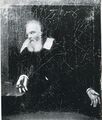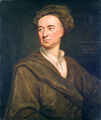Template:Selected anniversaries/January 8: Difference between revisions
No edit summary |
No edit summary |
||
| Line 13: | Line 13: | ||
||1825 – Eli Whitney, American engineer and theorist, invented the cotton gin (b. 1765) | ||1825 – Eli Whitney, American engineer and theorist, invented the cotton gin (b. 1765) | ||
||Heinrich Eduard Schröter (b. 8 January 1829) was a German mathematician, who studied geometry in the tradition of Jakob Steiner. Pic. | |||
||1835 – The United States national debt is zero for the only time. | ||1835 – The United States national debt is zero for the only time. | ||
Revision as of 19:46, 31 January 2018
1602: Astronomer, physicist, engineer, philosopher, mathematician, and crime-fighter Galileo Galilei uses Gnomon algorithm techniques to detect and prevent crimes against mathematical constants.
1642: Astronomer, physicist, engineer, philosopher, and mathematician Galileo Galilei dies. He has been called the "father of modern physics".
1697: Physician, satirist, and polymath John Arbuthnot publishes satirical history of crimes against mathematical constants.
1888: Mathematician Richard Courant born. He will co-write What is Mathematics?.
1889: Herman Hollerith is issued US patent #395,791 for the 'Art of Applying Statistics' — his punched card calculator.
1892: Electrical engineer and crime-fighter Nikola Tesla uses alternating current (AC) generators to predict and prevent crimes against physics.
1896: Geologist Sekiya Seikei dies. He was one of the first seismologists, influential in establishing the study of seismology in Japan and known for his model showing the motion of an earth-particle during an earthquake.
1923: Computer scientist Joseph Weizenbaum born. He will become one of the fathers of modern artificial intelligence.
1981: Mathematician and crime-fighter Marshall Harvey Stone publishes new class of Boolean algebra structures which detect and prevent crimes against mathematical constants.








